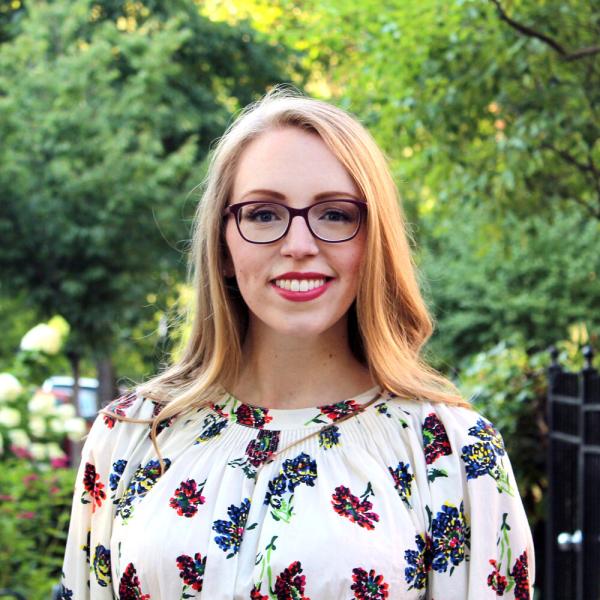Biography
Erica Warren is a curator and scholar with over ten years’ experience working with collections, in museums, and teaching. Her area of specialization within decorative arts and design histories centers on textiles and alternative modernisms in the nineteenth century and through to the present day. Within this broad expanse, her current research focuses on the human and ecological costs that attended industrial innovations in modern textile production, the American designer, entrepreneur, and weaver Dorothy Liebes, the Good Design exhibitions at the Chicago Merchandise Mart, intermedial and sensorial readings of modern art, and the unbounded material practices of contemporary artists working with textiles.
Her recent publications include the essay “Fission: Design and Mentorship in the Dorothy Liebes Studio” for the catalog accompanying the Cooper-Hewitt, Smithsonian Design Museum’s exhibition A Dark, A Light, A Bright: The Designs of Dorothy Liebes (2023). In 2021, her essay "Beyond Weaving: Transdisciplinarity and the Bauhaus Weaving Workshop," appeared in Textile: The Journal of Cloth and Culture, and the year before, she edited and contributed to the catalogue Bisa Butler: Portraits (2020).
From 2016-2022, Erica was a curator of textiles at the Art Institute of Chicago, where she organized numerous installations, including the critically acclaimed exhibitions Bisa Butler: Portraits and Weaving beyond the Bauhaus. She is currently the editor of the James Renwick Alliance for Craft Craft Quarterly.
Current MAPH Courses
Approaches to Art History (Winter 2026)
(ARTH 39800)
This seminar examines a range of methods for doing the work of art history with an eye toward strengthening your own original contributions to the field. Through close reading and discussion of recently published scholarship, we will interrogate how a range of scholars generate novel ways of seeing and understanding the objects that they study. Our methodological investigations will be structured around the notion of scale, starting from macro concerns like canons and empires while gradually zooming in to consider environments and institutions, audiences and artists, individual artworks, and ultimately fragments thereof. As we move through these stages, we will consider the production, circulation, display, and reception of art objects through a variety of interpretive traditions including social history, critical theory, material culture, phenomenology, feminism and queer theory, and post- and decolonial thought.
Some of our guiding questions will be: How does thinking at different scales help us interrogate objects and the multiple histories that shape them? Can these approaches help us rethink, modify, or dismantle canonical patterns of the field? And how do they enable us to reappraise issues of exchange, power, and purpose in our own scholarship? Students need not identify as art historians to enroll in this seminar—it will be helpful for all students who want to think deeply about their approaches to visual and material objects, whether still or moving images, sculpture, or performance, particularly if those objects feel genre-bending, difficult to theorize, or recalcitrant. This course registration is by consent only.
Color Everywhere: Textiles and Modern Art (Spring 2026)
(ARTH 25118 / ARTH 35118)
This course will consider the profusion of new dyes (aniline, azo, and vat) available for coloring textiles, foodstuffs, and other materials in the second half of the nineteenth century and into the twentieth and ask if these industrial innovations, which fueled subsequent rapid shifts in fashion, paved the way for modernist experiments with color. Artists who engaged with various media, including Sonia Delaunay, Sophie Taeuber-Arp, and Marguerite Thompson Zorach, will be central to the discussion. Modern artists’ engagement with theories of color, particularly those expounded by specialists working in the textile industry, such as Michel-Eugène Chevreul, will also be examined. The relationship between colors, dyes, coloniality, politics, and modernity will be interrogated in order to surface the othering and misrecognition of artists and artforms within art historical discourse. Fulfills the following categories in the ARTH major and minor: European and American, modern (post-1800), Theory and Historiography.

